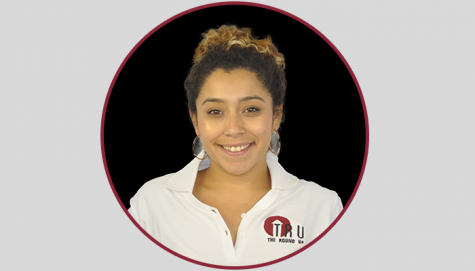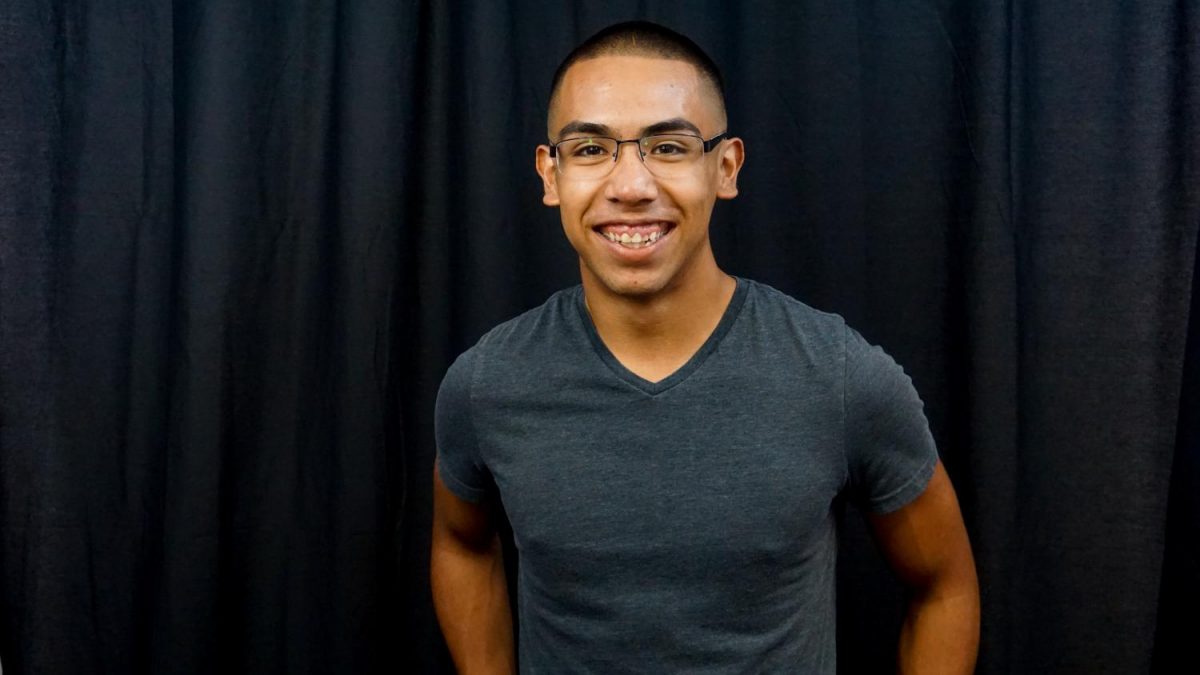Dreaming at NMSU
This NMSU Student is a Dreamer under DACA. He says he is not backing down without a fight.
Carlos Corral is a normal, hard-working student at New Mexico State University.
The volunteer firefighter who is working towards his Bachelors in Mechanical Engineering, Corral has embraced NMSU with a sense of purpose and worth ethic that can be described as unparalleled.
However, the same may soon not be reciprocated the same way on the part of not only the University but the nation in which he has called home – Carlos is a dreamer.
Corral was only a couple months old when his mother brought him and his siblings to the United States in hopes of having a better life. Despite growing up in Chaparral, New Mexico, Corral was born just 44 miles south in Ciudad Juarez, Mexico.
Those 44 miles would mean a lifetime of struggles and limitations for the first-year student.
Growing up, Corral was just like any other child in the United States- going to school in America, loving the same music, learning the same thing, always being a student. Carlos never felt different – that is until he entered middle school. In a time many try to conform to a crowd, middle school proved for Corral to be when he realized that fitting in was something that wouldn’t be easy for him.
“I knew I was from Juarez, I just didn’t know what citizenship was ‘till I was in middle school and I found that if you were born somewhere else you don’t belong here,” Corral said.
Corral remembers feeling secluded and small – up until middle school he thought he was just like everyone else.
“Feeling like you can’t tell anyone, feeling like you’re different, it’s just really hard,” Corral said.
His immigration status kept him from participating in school activities that involved traveling anywhere out of the city. Accepting his immigration status was something that didn’t come easy for Corral. He had to accept the fact that he was going to face many limitations that went beyond middle school. He had to accept that he was going to struggle when it came to scholarship and financial help for college.
Corral had many barriers growing up, but his family was always behind him.
“They [his family] tell me to keep going,” Corral said. “They’ve always motivated me to go for more and I feel like regardless of my situation and everything I’ve always been very ambitious and I have always had my family pushing me forward, striving for more. They just want the best for me and I know they’re there.”
Corral has three siblings – one of them being a younger brother who is 15 years old. Unlike Carlos, his brother was born in the United States. “Because he is a citizen we don’t try to put him in our situations. So, we treat him like nothing, like we are the same,” Corral explained.
Although Corral tries to treat his younger brother like they are the same, he knows that their situations are very different. He compares their personalities to the sun and the moon.
Corral explains that growing up, he had pressure to do better because he was limited on resources and options. He credits the pressure into making him ambitious. His brother, on the other hand, is more laidback, relaxed and, as he puts it, a little less responsible.
“Just like my mom raised me, regardless of the decisions you make we’ll be there for you,” Corral said. “So because of that, we gave him his own path to choose.”
Corral notices that many citizens take things for granted, not just his brother. Being limited on so many things during his life taught Corral how to take advantage every opportunity that came his way, no matter if it was big or small.
From a young age, he acknowledged his situation. In eighth grade, Corral’s immigration status motivated him to attend Early-College high school. This opportunity allowed him to graduate from high school with an associate’s degree.
After graduation, Carlos was one of 790,000 young unauthorized immigrants to receive deportation relief through DACA. Under DACA Carlos was able to live a normal life.
“It’s [Corral’s immigration status] always the ball and chain holding you back, but with DACA I feel regular. Just like anyone else,” he said.
Feeling like anyone else, for Corral, meant being able to do all the things that he wasn’t able to do to growing up. One of those things was traveling, a restriction that confined Corral to stay within 50 miles of the border.
“Before DACA I hadn’t gone anywhere in eight years,” Corral said.
When the school year ended, Corral traveled to Chicago and also visited Colorado where he got to see his father for the first time in over eight years. Corral’s father is an undocumented immigrant which meant that both of them had traveling restrictions, but under DACA he was able to make the journey to reconnect with his dad.
Not only did Corral travel far from his home, but he also made the travels to the destinations that were close to his home, but never got the chance to visit.
He traveled to two of New Mexico’s prominent attractions, Carlsbad Caverns National Park and White Sands National Monument. Although Corral enjoyed traveling he said that there’s nothing like home.
Just when Corral had begun living a life with little limitations, President Trump’s administration announced that they would begin phasing out DACA. For many dreamers – including Corral—around the United States this brought back an all-too-familiar feeling of fear.
Fear that all the obstacles he has overcome and all the hard work he has put into accomplishing his goals would be taken away from him, even though he has worked harder than many citizens in the United States to get where he is at.
Corral struggles with understanding the fact that some U.S citizens don’t do much to give back to the community. Despite the ‘immigrant’ label that society has put on Corral, he gives back to the nation that continues to threaten him with deportation.
“Me, like an immigrant that they call me, you know, I took advantage of everything,” Corral said. “Summer, I worked two jobs, I volunteered at the fire department, I try to give back as much as possible.”
If DACA ended it would send more than the 790,000-young people back to a country that many of them have never seen, but Carlos is hopeful for his future in the United States. Much like a lot of other DACA recipients Corral will not go down without a fight.
“I feel like regardless what happens, I’ll prevail because I have been here 19 years already – so I feel like I’ve come so far there’s nothing holding me back,” Corral said.
Now a student at NMSU, his aspiring mentality has brought him a long way and he plans on continuing to strive to accomplish all the goals he has set for himself.
“I feel like everyone should know that were just the same, were brought up the same, the only thing that changes us [like I’ve said] is our origin,” Corral said. “The origin is nothing, it’s what you make out of life, you know, and I feel like there’s nothing besides skin color or origin that differentiates [us] and I feel like they shouldn’t apply that label on us because that not who we are.” “I don’t consider myself an immigrant. I consider myself a student, a worker, a firefighter. I consider myself a citizen.”

Jianna Celeste Vasquez is a journalism major and managing editor at the Round Up. She has been writing for the Round Up for three semesters. Vasquez began...

